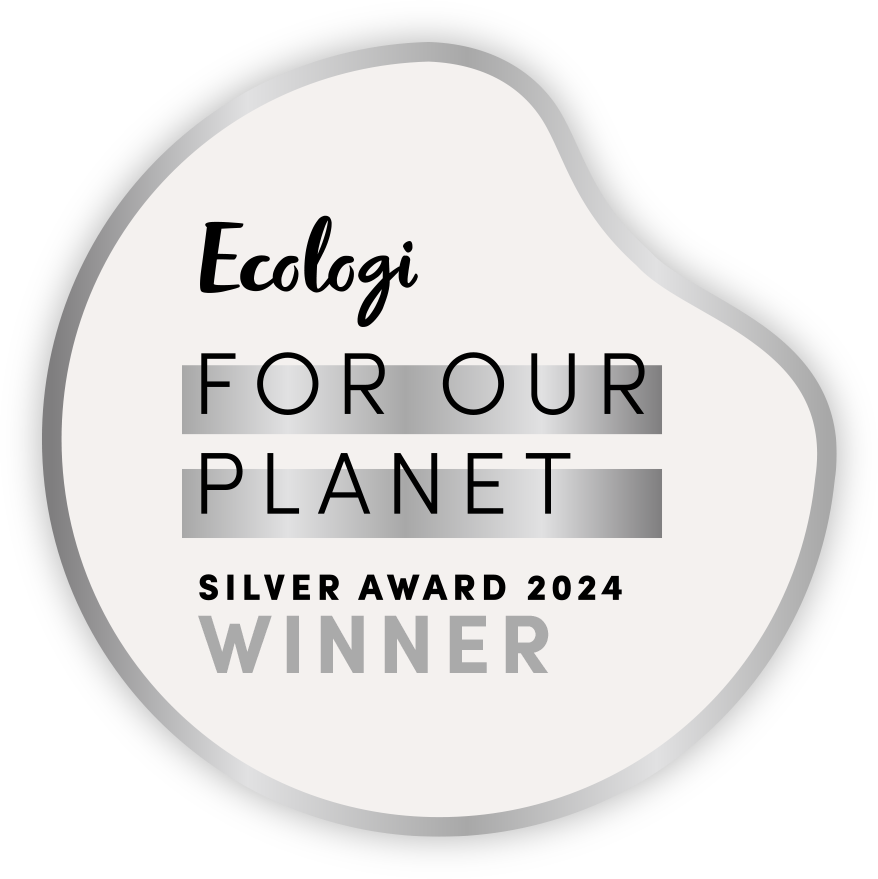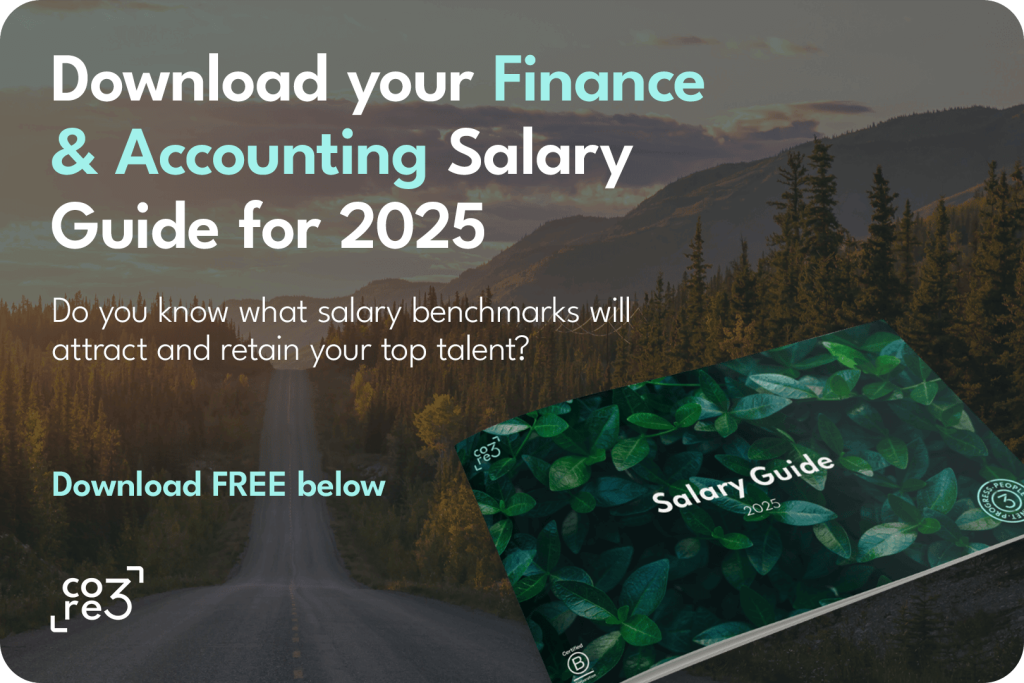As a professional recruitment agency we hear about finance departments only caring about top-line and bottom-line profit. However, Rob Porter, finance director of Miele, is someone whose leadership style fundamentally challenges that stereotype! Rob has shown, by placing his people firmly in the first place, that team and individual growth lead to sustainable profitability. Our CEO, Leo, was delighted to be able to interview Rob on the “Conscious Finance Podcast”.
As finance director for Miele, Rob approaches his day-to-day work with his team with a real sense of purpose. A commercially–minded finance person, Rob desires to leave this planet having improved things a little for the better through the job that he does. Rob thinks that we should all be working with some sense of purpose, no matter what we‘re doing. Otherwise, how can we expect other people in the team to be passionate about what we are doing?
Rob believes in building sustainable models and that finance has a huge part to play in creating a better, more sustainable future. We don’t necessarily have to try to solve all the world’s problems in one go, but we can make things just that little bit better on a small scale, prove (or not) a concept at small scale and, where successful, scale it up.
As a young person, Rob was very curious about recessions and crises and struggled to understand the economy and why it had to behave in a “Boom and Bust” fashion. He didn’t understand why there would be a short period of prosperity and then, bust again! Rob understood that finance underlaid the way the world worked (or didn’t!), so he wanted to understand it and, if possible, change it. He studied finance at university and achieved his CIMA and along the way he discovered that in finance, the way that standards were set up protected the status quo, and focused too much on the short-term annual cycle, not the longer view, which in part causes the Boom and Bust cycle.
Rob set out to try to find ways to operate more sustainably and to educate people in a business about how to do things better and work with a long-term perspective rather than a perpetual short-term sprint. He knew that it would be hard to break out of that cycle because we are focused so much on short-term goals and profitability. Sustainable, long-term choices are often more expensive, unfortunately, so we have to make a slight sacrifice to have that long-term gain.
However, even as a young man, Rob realised that you can’t solve the problems of tomorrow by putting sticky tape on the problems of today.
What we need to do is take small steps to achieve something really big. Everything starts with the individual. Whether it’s the way we manage our finances, the way we manage our books or the products that we choose to buy. We all make choices and sometimes we have to make short-term choices with a limited amount of funds. However, always operating hand to mouth without long-term vision, will keep us in the same situation. We have to identify the short-term habits that we are willing to change to impact the things that we care about long term.
Cost versus value
As finance leaders, we can change the dialogue in business away from cost and towards value and highlight the difference between the two. Something that brings value might not come with the lowest price tag, likewise, the most sustainable choice is never normally the cheapest choice, but we have that choice to make to start planning long-term and thinking about the legacy we are leaving.
Miele, for example, does not sell the cheapest machines because of their ethos, they rather use their technology for the greater good to help the community. Their machines are so efficient that they use half the electricity and half the water consumption of their competitors’ models.
Bonus versus legacy
There are so many businesses, big and small, which focus on short-term growth and that month-on-month, year-on-year mentality.
The whole system of bonuses for instance, encourages a yearly focus, preventing people from thinking long-term as their focus is on their March bonus. Finance leaders can change this by putting in place the patterns that influence our investment strategy, talking about legacy and being motivated by a higher cause. In this way we create models that are scalable on a small level, and have an impact on our world.
The role of the finance leader
If you’re going to turn an organisation around, you have to start with your people. The way that you inspire people and get them on board is to invest your time in them and investing in them is investing in the long-term of the business. Look ahead one year or two years on their behalf and have honest conversations with your teams about where they want to be in the future. Often we lock people in roles and when their skill set becomes outdated we realise that we should have been training them to make them more agile and hungry for the next opportunity. Encourage a feedback culture and create an environment of trust where we can have authentically honest relationships. It’s hard to take honest feedback on the chin sometimes, but it can be tremendously helpful!
People are the biggest asset in the world of finance
Rob Porter believes, (and so do we as a professional recruitment agency) that people are undervalued in the working world as a whole. The well-worn phrase of “people being our greatest asset” sounds great, but rarely do we live by this. In a technical sense we certainly do not treat people as assets (when we add to a machine we capitalise it over its life, but we expense training and development in year – making it all to easy area to cut to deliver a profit.
When we value and invest in the people in our teams we treat them as our greatest assets, just like when we invest in up keeping a machine keep it working optimally, we invest in our people over the lifetime of that person in the business (and beyond… because yes, they may move on). Every person in the team should be working on their personal development plan with regular checks ups keep people on target.
With the team onside, you then need to communicate and bring to life your vision, creating genuine purpose and long-term thinking into the everyday.
Among your leadership team, work out what the priority objectives of the leadership team are – they are your ‘why’ or your vision. Don’t just focus on cost. Long–term goals can then be drawn up and then broken down into short sprints (I like quarterly). If you want to deliver excellence you have to start with the brilliant basics. OGSM is a great methodology, creating Objectives that can be condensed into Goals which can be reached via Strategies whose efficacy can be Measured, and then remain agile to adapt to learnings.
Working this way won’t save the world in one day but it will make the ‘boring’ daily basics resonate with the longer–term road map of where the company is headed. The Long-term vision is linked to short–term wins so that people remain engaged, With this pattern, all the short sprints link to the corporate vision and the leadership team vision – your ‘why’. Your KPIs and OGSMs are your ‘what’ and that is supported by culture, behaviours and attitudes – your ‘how’. It’s the way you deliver your ‘how’ that makes the difference between you and other organisations. The how is more important than the what.
Miele’s corporate vision is “Immer Besser” (forever better) and that permeates down into everything Miele does daily to create a premium experience for their customers, people, planet and performance.
As a new finance leader, your job is to understand and simplify the company vision to create team/functional visions which build to the overall vision so that everyone feels a part of this. Working collaboratively on this not only creates ownership but is a great team-building activity There is no perfect framework, and it will take time, but when you get that seamless link from a broad vision, to team vision, to measurable sprint goals and achievements the results are beautiful for individual, team and company performance.
Your people, your team really are what will turn your results. If your team are good, you look good, so their development and engagement is of paramount importance. Profit is then the result of what you do, making the “How” vital!
Short-term focuses can be used for an immediate challenge or result, but you need to balance the operational focus with the strategic to ensure you solve not just today’s challenge but tomorrow’s too. This can be evidenced through economic/societal challenges, fixing the immediate problem is a sticky plaster, as the problems were caused by decisions taking many years/decades ago. If wanted to solve today’s problems we should have started 20 years ago, with that mindset you need the balance of today and tomorrow. Create the short sprint goals to deliver our ultimate vision. If I can help today in some small way to solve the problems of tomorrow, I am setting up the business to be successful in ten, twenty or thirty years time. That’s the legacy piece.
Rob’s encouragement to the world of finance (and to us as a professional recruitment agency) is to look for the long-term value, not the short-term solution. Think in generations not calendars. There is no short-term sticky plaster!





